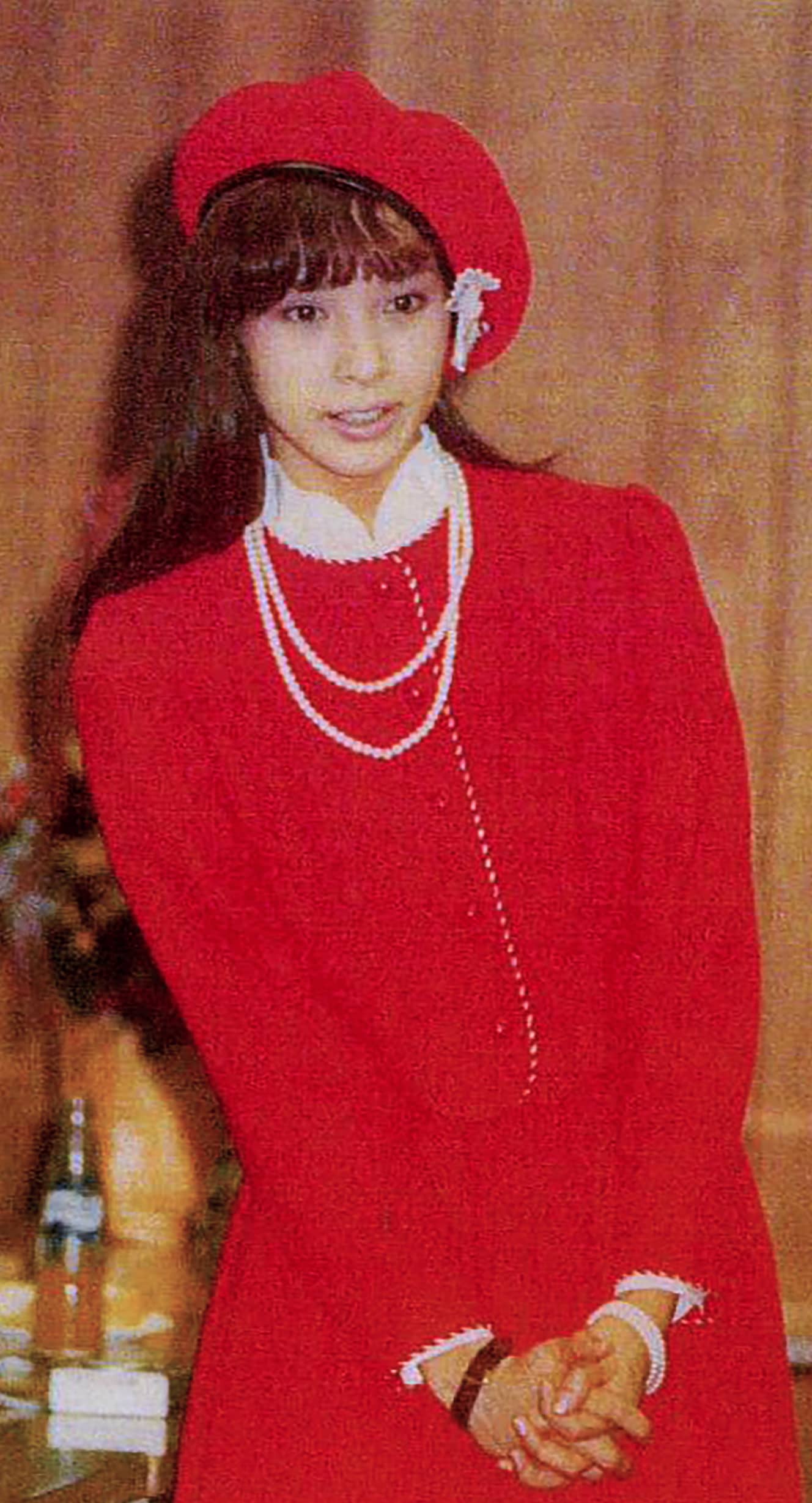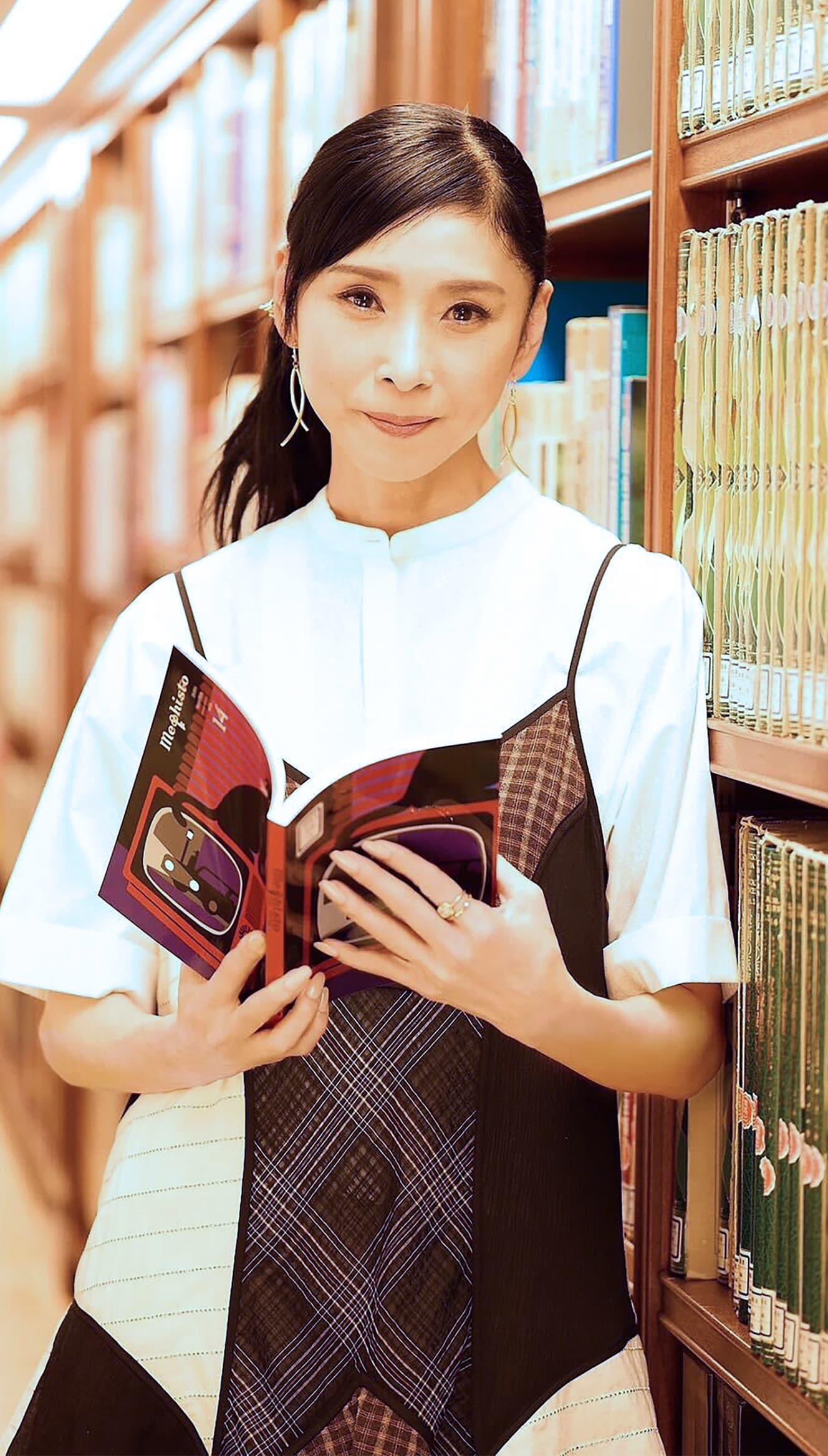Exclusive Interview with Hitomi Kuroki Acting is Not Interpretation Its Impulse
Special Interview, Part 1
With a career spanning over 40 years and over 200 appearances, the top actress now reflects on her thoughts

“I have something to tell you. I’ve decided to quit being an actress.”
One day before the spread of the new coronavirus, when she told her husband this, there was a brief silence of about 10 seconds before his response: “That’s fine, isn’t it?”
“He said it so casually. As I was reading a script for an offer I received, I started to feel uneasy. And before I knew it, I was back on set. It’s strange, isn’t it?”
The person speaking with a somewhat cheerful tone is actress Hitomi Kuroki (64). In 1982, she became the youngest-ever top daughter role at 22 in the Takarazuka Revue, and in 1997, the film Lost Paradise caused a social phenomenon. Since then, she has continued to challenge both film and stage, working as both an actress and director. Her career has already exceeded 40 years, yet she continues to take on new challenges at the forefront of entertainment.
“After several back-and-forths of quit or not quit, my husband started calling it the quit-quit fraud (laughs). For me, it might be as casual as saying ‘I quit drinking.’ But whenever I receive an offer for a new project, I always think, ‘I really want to act!’ I really love acting.”
When her work disappeared during the pandemic, she said that she had once thought it was okay to let go of work, so she wasn’t overly scared. Of course, there was anxiety, but she didn’t panic and was able to spend time in self-restraint.
She neither wants to quit nor force herself to continue. But before she knew it, the desire to return to work came back. And it was through numerous encounters that her soil was nurtured, which ultimately shaped “Hitomi Kuroki.”
“I’ve only done this work. Therefore, what has nurtured me, both as an actress and as a person, is the encounters.”
One way to stand up
The origin of this mindset lies in the Takarazuka Revue. She reflects on how she saw the professionalism in the back of Mao Daichi (69).
“When I first shared the stage with Daichi-san, I thought, ‘Ah, this is what being a professional is.’ It’s about understanding what it means to receive money from the audience. From their posture to everything else, the seniors showed me everything.”
After her retirement from the troupe, the words of director Yoichi Higashi (90) during her first leading movie Kessen (1986) have stayed with her.
“When I asked him about not being able to cut my hair due to the next scene’s requirements, he angrily said, ‘We’re filming this movie now. Don’t think about the next thing!’ (laughs). In the end, I went for a short haircut. I still can’t forget those words. It made me realize that I have to live this work right now.”
The words of director Mitsuhiko Kuze (deceased) from the 1991 Black Picture Collection: The House on the Hill (TBS) also greatly shook her acting perspective.
“He told me, ‘You’re speaking too clearly for this role, so speak unclearly,’ and ‘Walk with a slouch.’ After hearing that, I realized, ‘Just the way you stand can transform you into that person.'”
Words from co-stars and directors have cultivated the soil for her acting career. However, no matter how rich the soil, it doesn’t always guarantee that sprouts will appear. What’s necessary to grow those sprouts is passion.
“If I lose my passion, I’ll quit acting. Acting isn’t about interpretation, it’s about impulse. It’s that irresistible urge to become this person!”
She compares the energy that drives her to perform on stage to a particular sport.
“Concentration doesn’t last long. So, I never have the feeling that the role is gone. If I were to compare it to horse racing, there’s training, then the paddock where the audience sees you, entering the gate, and at the moment the bell rings, you align all your energy into that one instant—like a racehorse. (laughs)”
To prepare for that, she carefully tunes herself, feeling everything from the costumes and makeup to the atmosphere on set and the tone of her co-stars’ voices. She says it’s about quickly igniting in the performance and then effortlessly shedding it afterward. That’s her definition of concentration.
In January this year, she held additional performances for the reading play The Broken Rubin’s Vase, in which she performed a one-and-a-half-hour monologue while seated. She was required to live through only her voice and breathing.
“Because I couldn’t move, I had to burn with energy here (pointing to her chest). I really think I was on fire. (laughs) Just because I was sitting, I couldn’t slack off. Not being able to move made the energy burn inward. And that energy carries through my voice.”
What I Learned from Korean Drama
She also mentioned that she learned something from the popular Korean dramas trending now.
“I love Korean dramas. The villains are truly evil, right? They don’t redeem themselves halfway through, they don’t offer any excuses, they are just pure evil. That thoroughness actually feels refreshing to me.”
Now, she’s so hooked on them that she watches them during her commute or in her off time.
“In the past, when playing a villain, I used to ask the producers to include a background in the script, explaining why the character turned out the way they did. But at one point, I suddenly thought, ‘Maybe I don’t need that anymore.’
Acting is just about becoming that person. It’s not about empathy or understanding, it’s about going all in, committing fully. Without hesitation, just diving into it. I realized that I get much more fired up this way.”
Recently, what has particularly captured her attention is the Netflix Korean drama Good or Bad, But She’s a Mother.
“The portrayal of the mother role is incredibly powerful, and I couldn’t help but get absorbed in it. I thought, ‘I’d love to play a character like that, whether good or bad.’ The production is so detailed and the quality is high. I really recommend it.”
In the second part of the interview, Kuroki talks about what she has felt through her experiences in directing and producing, and also reveals the “72-hour rule” that serves as her motivation.



From the April 25 and May 2, 2025 issue of “FRIDAY”
PHOTO: Kazuki Shimomura Stylist: Hitoko Goto Hair & Make-up: Keizo Kuroda (Iris)